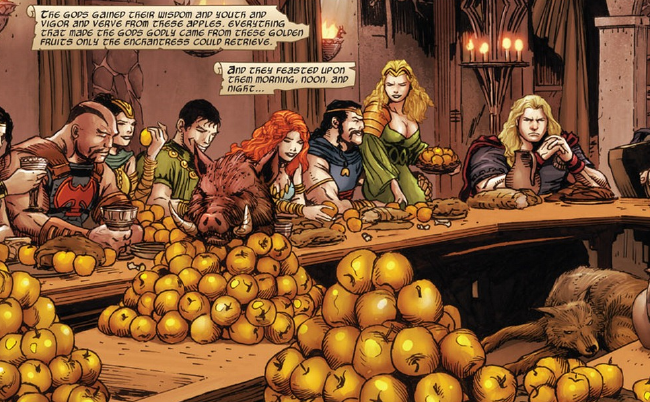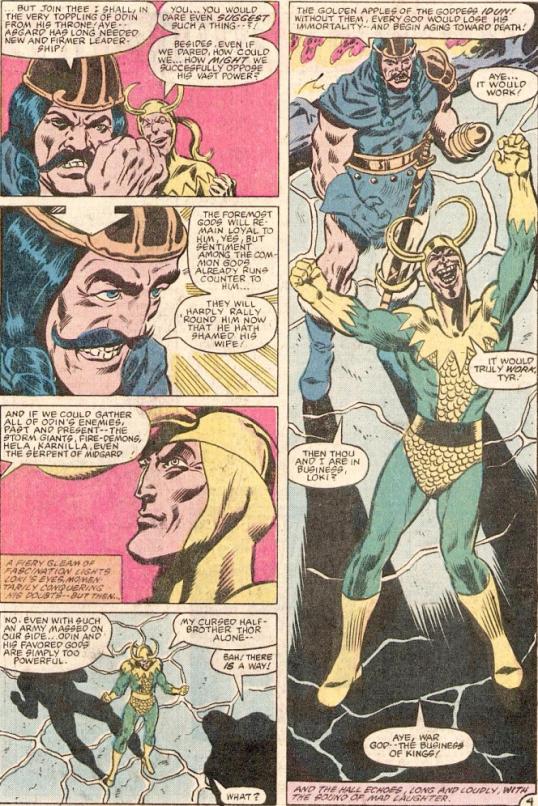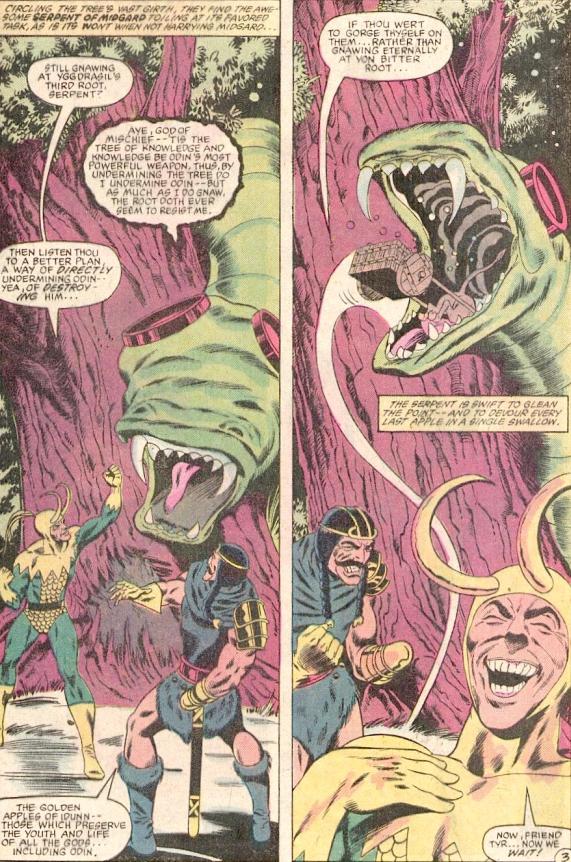In Thor: The Dark World, Odin and Loki are discussing Loki's actions during The Avengers. Loki argues that he would have ruled Earth as "a benevolent god", and Odin replies:
Odin: We are not gods! We are born, we live, we die, just as humans do.
Now that's pretty definitive. And Loki's snarky reply ("Give or take five thousand years...") would seem to confirm that Asgardians have a limited lifespan, and will eventually die of old age.1 And we know that Asgardians can die in battle, because we've seen it happen over and over with supporting characters and Asgardian soldiers.
Now, I've always been more of a fan of Thor stories (like Jason Aaron's Thor: God of Thunder arc) in which Thor and the Asgardians are gods. Straight-up, genuine, higher-level-of-existence gods, not von-Däniken-esque wannabes playing on the tired old notion of magic just being super-advanced science. BUT, despite my preferences, this exchange would seem to confirm once and for all that in the MCU, the Asgardians are not gods, but rather were mistaken for gods because of their ram-horns full of awesome-sauce and their magnificent bulging pecks.
But wait! Watch that movie for about 30 seconds longer and we come across this exchange:
Thor: She is ill.
Odin: She is mortal. Illness is their defining trait.
Wait, what? I thought Asgardians weren't immortal? They can die in battle, and they naturally die of old age. In my book, that makes them long-lived, but entirely "mortal". Surely Odin isn't splitting a hair so fine as to say that resistance to disease alone makes one "immortal"?
So, if the Asgardians of the MCU aren't actually gods (grumblegrumblegrumble...), and they can't live forever (or even particularly long in a cosmic sense), and they can be killed in battle, in what sense are they "immortal" at all?
1 Fun fact: adjusted for a roughly 5,000 year lifespan, 1,048-year-old Loki is currently in the tail-end of his rebellious teenage phase.



